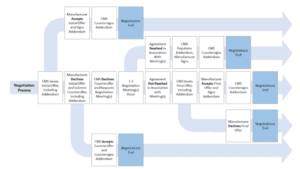UnitedHealth Buying In-Home Health Provider LHC For $5.4 Billion – Kaiser Health News

The deal by Optum — UnitedHealth’s health-services arm — is to purchase LHC Group, one of the largest home-health companies. Fraud in California’s hospice industry, a $5 million fine for Anthem Blue Cross Blue Shield, Black-owned health care centers in Indianapolis and more are also in the news.
Modern Healthcare:
UnitedHealth’s Optum To Buy LHC Group For $5.4 Billion
UnitedHealth Group’s Optum announced Tuesday it plans to purchase in-home healthcare provider LHC Group for an estimated $5.4 billion. The deal is expected to close in the second half of 2022, a news release said. “Working together as organizations committed to caring for the most vulnerable in society will help us more effectively and efficiently deliver high quality and increasingly value-based care in the home,” LHC Group Chairman and CEO Keith Myers said in the news release. (Christ, 3/29)
The Wall Street Journal:
UnitedHealth To Buy Home-Health Firm LHC Group For $5.4 Billion
The acquisition by UnitedHealth’s Optum health-services arm, which was announced Tuesday, will add one of the country’s largest home-health firms to a portfolio that already includes doctor groups, clinics and surgery centers, as well as some home-based services. Wyatt Decker, the chief executive of Optum Health, the unit that focuses on providing healthcare, said the company sees rising demand from patients and families for home-based care. “This trend has really only just begun, of how much care can truly be delivered in the home,” he said in an interview. “We can give care in the home, which is a lower-cost setting…than nursing homes or more advanced care facilities.” (Mathews, 3/29)
Stat:
UnitedHealth Deal With LHC Highlights Broad Interest In Home Health
UnitedHealth Group’s proposed $5.4 billion buyout of home health and hospice provider LHC Group serves as another example of the health insurance industry’s ravenous appetite to own more parts of health care delivery, especially the care people receive in their homes. But the interest in home health — a lower-cost venue that remains highly lucrative, particularly for the Medicare population of people 65 and older — has also come from a host of other companies with money to burn, including hospitals and financial investors like private equity firms. (Herman and Bannow, 3/29)
In news about the hospice industry in California —
Los Angeles Times:
Fraud Plagues California’s Hospice Industry, Audit Finds
A rapid boom in the number of hospices and other factors strongly point to a large-scale organized effort to defraud federal end-of-life care programs in Los Angeles County, putting vulnerable dying patients at risk of harm, according to a long-awaited state audit released Tuesday. Auditors blamed lax oversight for the problems, noting that the California Department of Public Health became aware of possible fraud by some for-profit hospices seeking licenses yet still approved them, essentially enabling “hospice agency operators who are possibly fraudulent to continue functioning, placing patients at serious risk of not receiving appropriate care.” (Poston and Christensen, 3/29)
AP:
Audit: Lax Oversight, Fraud Within California Hospice System
The number of hospice facilities in Los Angeles County has shot up since 2010, the report said, without a proportional need in the county for end-of-life care. Some patients were discharged after receiving hospice services for long periods of time, clear indications of potential fraud, according to the audit. Auditors uncovered “excessive geographic clustering” of facilities, including a single building in the Van Nuys neighborhood of Los Angeles that had more than 150 licensed hospice and home health agencies — “a number that exceeds the structure’s apparent physical capacity,” the report said. (Weber, 3/30)
In other health care industry news —
Georgia Health News:
State Hits Anthem With Whopping Fine For Insurance Violations
The state insurance department has levied a $5 million fine against health insurer Anthem Blue Cross Blue Shield, the largest such penalty in the agency’s history, for violations of state law involving medical providers and consumers. Insurance Commissioner John King, at a Tuesday news conference at the State Capitol, cited numerous complaints in taking the agency action. The Georgia insurance department was “inundated with complaints about Anthem from individuals, from doctors, hospitals and others, from all corners and across Georgia,” King said. (Grapevine and Miller, 3/29)
Indianapolis Star:
2 Black-Owned Health Care Centers Open In Indianapolis
TaQuita Taylor did not set out to break any barriers when she decided to open a pediatric urgent care clinic. The family nurse practitioner has a business planning spa parties, or sparties, for young girls but then had another idea that called to her — opening a pediatric urgent care clinic. And her conviction that she made the right decision in opening Children Express Care Clinic, grew even stronger when she learned that northeast side clinic is the first Black-owned urgent care site in the state. “That is great because honestly there’s not a lot of Black providers, not a lot of minority owned independent health care facilities,” she said. “You know, you just got to break those generational curses.” (Rudavsky, 3/29)
North Carolina Health News:
Rural Hospital Closures Cluster In Poor, Diverse Counties
In the past decade, rural hospitals that shuttered tended to be in rural counties with lower incomes, higher levels of unemployment, and higher proportions of Black and Latino residents. That finding comes from a recent study conducted by researchers at the Cecil G. Sheps Center for Health Services Research at UNC Chapel Hill. The 141 rural hospitals that closed nationwide between 2010 and 2020 were also often located in counties adjacent to metropolitan areas. Federal hospital finance data show that the rural hospitals in North Carolina that had the weakest financial outlook in 2019 — the most recent year for which data are available — are in counties that share many of the characteristics of the communities that suffered closures in the last decade, according to an analysis by NC Health News. (Donnelly-DeRoven, 3/30)
This is part of the KHN Morning Briefing, a summary of health policy coverage from major news organizations. Sign up for an email subscription.


